Birds are not often thought of as susceptible to strokes, but it is a condition that can affect them. Strokes in birds are caused by a blockage of blood flow to the brain, and they can have a variety of symptoms depending on the severity. While strokes are not always fatal, they can be debilitating and cause long-term damage. There are some care tips that can help if your bird has had a stroke.
Can Birds Have A Stroke?
Yes, birds can have strokes. Symptoms include weakness, paralysis, and incoordination in the affected limb or side of the body. Treatment involves supportive care and, in some cases, surgery to remove the blockage. The cause is typically a blockage in the blood vessels that supply the brain.
Symptoms Of A Stroke To Look For In A Pet Bird
A stroke is a serious medical emergency that can happen to anyone, including our feathered friends. Just like in humans, a stroke in a bird can cause paralysis, weakness, and even death.
There are several symptoms of a stroke that you can look for in your pet bird. These include:
-Sudden weakness or paralysis in one or both legs
-Sudden weakness or paralysis in one or both wings
-Sudden loss of balance
-Sudden change in behavior, such as lethargy or aggression
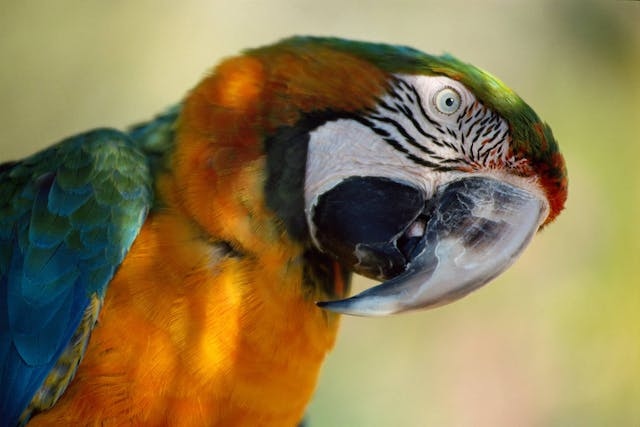
If you notice any of these symptoms in your bird, it is important to take them to the vet immediately. A stroke is a medical emergency and the sooner your bird gets treatment, the better their chances are for a full recovery.
Partial Or Full Paralysis
In some cases, physical therapy may be helpful in aiding the bird’s recovery. Treatment for a bird that has had a stroke is typically supportive care, including providing warmth, rest, and fluids. The causes of strokes in birds are not fully understood, but they may be related to underlying health conditions such as heart disease. Birds are susceptible to strokes, which can cause partial or full paralysis. The symptoms of a stroke in a bird include weakness, lethargy, and incoordination.
Vocalization And Falling
If you see a bird that has fallen, it is important to take it to a vet or animal hospital immediately. When a bird falls, it may be a sign of a stroke. Symptoms of a stroke include weakness, paralysis, and loss of coordination. A stroke is a serious medical condition that can lead to death.
Blindness In One Eye
There are several possible causes of blindness in one eye in birds, including stroke, trauma, and infection. While blindness in one eye is not as common in birds as it is in mammals, it can still occur.
There are several treatment options available for birds with blindness in one eye, including surgery, medication, and physical therapy. If your bird is blind in one eye, it is important to take them to the vet as soon as possible to rule out any underlying medical conditions.
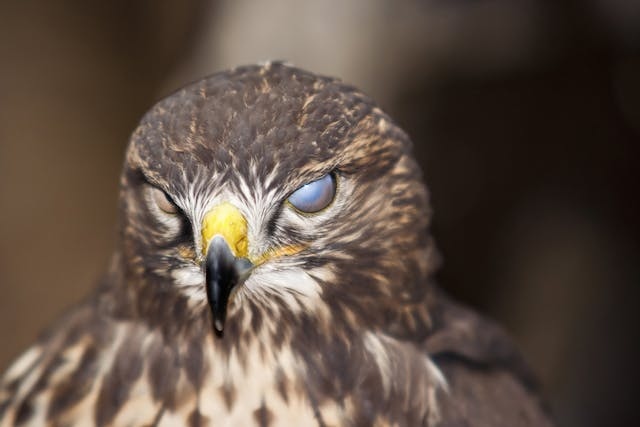
With proper care, most birds with blindness in one eye can live long and happy lives.
Loss Of Appetite
In some cases, the loss of appetite may be the only symptom of a stroke. A loss of appetite is one of the most common symptoms of a stroke in birds. If your bird is showing signs of a loss of appetite, it is important to take them to the vet for a check-up. The cause of this symptom is the interruption of blood flow to the brain, which can damage the nerves that control the bird’s appetite.
Seizures
Seizures are a neurological disorder that can affect any mammal, including birds. Seizures can be very dangerous for birds, as they can often lead to death. Seizures can be caused by many things, including head trauma, low blood sugar, and poisoning.
If you think your bird may be having a seizure, it is important to take them to the vet immediately. Symptoms of seizures in birds can include shaking, twitching, and loss of consciousness.
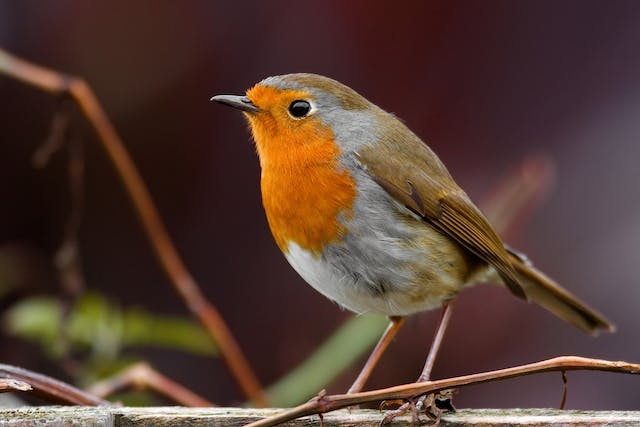
However, some common treatments include anti-seizure medication and oxygen therapy. There is no one-size-fits-all treatment for seizures in birds, as the cause will dictate the course of treatment.
Seizures can be very frightening, both for the bird and the owner. However, with prompt treatment, many birds make a full recovery.
What Causes Strokes In Birds?
There are many potential causes of strokes in birds, including high blood pressure, heart disease, and blood clotting disorders. Infections, tumors, and trauma can also lead to strokes. In some cases, the exact cause of a stroke may never be determined.
Symptoms of strokes in birds can vary depending on the location and severity of the stroke. Common symptoms include weakness, paralysis, and changes in behavior or personality. Birds may also exhibit seizures, head tilt, and difficulty breathing.
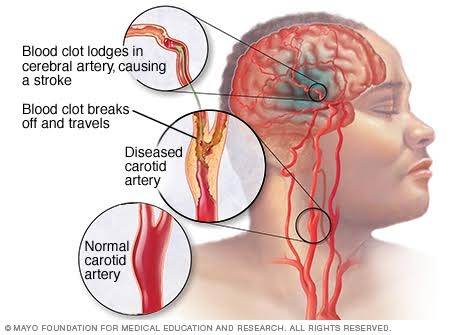
If you suspect your bird has had a stroke, it is important to seek veterinary care immediately. There is no one-size-fits-all treatment for strokes, but prompt medical care can improve the chances of a successful recovery.
Bad Diets
A diet high in fat and cholesterol can lead to strokes in birds. To prevent strokes, birds should be fed a healthy diet and have regular checkups with a veterinarian. Causes of strokes in birds include atherosclerosis, hypertension, and heart disease. The symptoms of a stroke include weakness, paralysis, and seizures.
Old Age
As we age, our bodies change in many ways. These changes can make us more susceptible to falls and other accidents. We may not be as strong or agile as we once were, and our sense of balance may not be as sharp.
We may be more forgetful, and we may feel more anxious or depressed. We may also experience changes in our mental health. Our memory may not be as sharp as it once was, and we may have trouble concentrating or making decisions.
However, it’s important to be aware of them so that you can take steps to stay safe and healthy. For example, if you’re worried about falling, you can talk to your doctor about ways to reduce your risk. These changes are normal, and there’s no need to be alarmed. And if you’re feeling more forgetful or anxious, there are strategies that can help you cope.
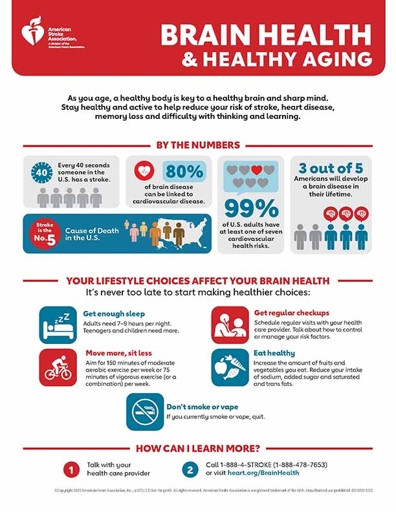
They can help you understand what’s normal and what may be cause for concern. If you’re concerned about any changes you’re experiencing, talk to your doctor.
Diseases And Parasites
There are many diseases and parasites that can affect birds. Some of these diseases can be deadly, so it is important to be aware of the signs and symptoms.
Symptoms of avian influenza include lethargy, loss of appetite, and increased respiratory rate. This disease can be deadly, so it is important to seek veterinary care if you suspect your bird has it. One disease that birds can get is avian influenza, which is a highly contagious virus that can cause severe respiratory illness in birds.
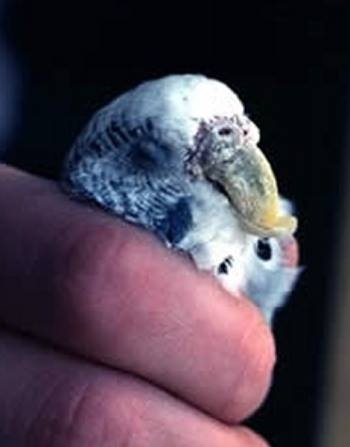
This disease can also be deadly, so it is important to seek veterinary care if you suspect your bird has it. Another disease that birds can get is Newcastle disease, which is a viral disease that affects the respiratory, gastrointestinal, and nervous systems of birds. Symptoms of Newcastle disease include sneezing, coughing, and diarrhea.
Some of the more common parasites that affect birds include mites, lice, and ticks. There are also many parasites that can affect birds. These parasites can cause irritation and discomfort, and can sometimes transmit diseases to birds. Some of these parasites can cause disease, while others may just be a nuisance. If you suspect your bird has any of these parasites, it is important to take them to a veterinarian for treatment.
Sleep Deprivation
Sleep deprivation can cause strokes by increasing the risk of high blood pressure and by causing the blood vessels to constrict. In addition, sleep deprivation can make it difficult for the body to repair the damage caused by strokes. Sleep deprivation is a serious problem that can lead to a number of health problems, including strokes. Strokes occur when the blood supply to the brain is interrupted, and can cause permanent damage.
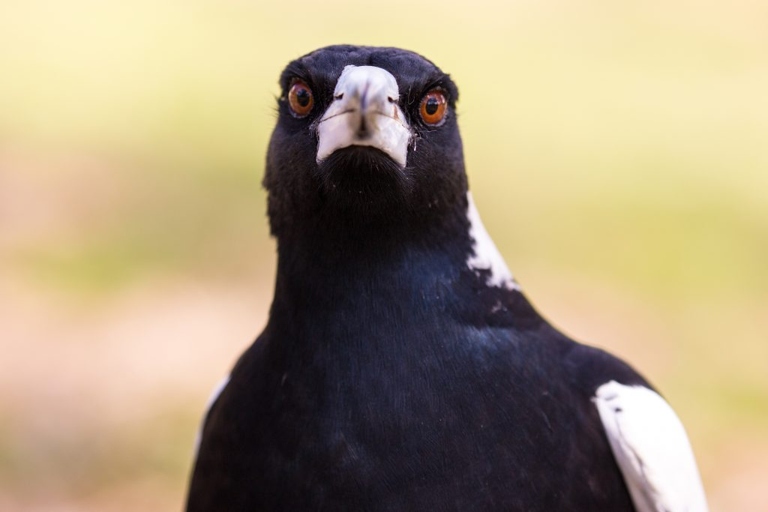
There are a number of ways to treat sleep deprivation, and your doctor can help you find the best way to get the rest you need. If you think you may be at risk for sleep deprivation, talk to your doctor. Sleep deprivation is a major problem in our society, and it’s important to be aware of the risks it poses to our health.
Cerebral Apoplexy
This can happen due to a variety of reasons, including a blockage in the arteries that supply blood to the brain or a bleed in the brain itself. Cerebral apoplexy is a condition that results when the blood supply to the brain is interrupted. When this happens, the brain tissue is deprived of oxygen and can start to die.
If you suspect your bird may be having a stroke, it is important to seek veterinary care immediately, as this is a potentially life-threatening condition. Symptoms of cerebral apoplexy in birds can include weakness, paralysis, and seizures.
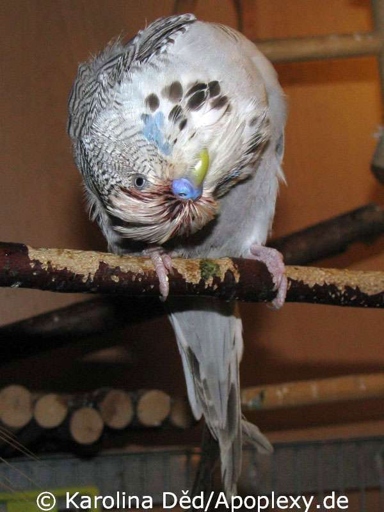
There is no one definitive treatment for cerebral apoplexy in birds, as the approach will depend on the underlying cause. With prompt and appropriate treatment, many birds can make a full recovery from a stroke. However, treatment may involve administering oxygen, providing supportive care, and managing any underlying conditions.
How To Care For A Bird After A Stroke
Once they are stabilized, you can help them by providing a quiet and calm environment. First, it is important to get them to a veterinarian as soon as possible so they can receive proper care. Give them time to rest and recover, and offer them soft foods that are easy to eat. With proper care and time, your bird should make a full recovery from their stroke. If your bird has suffered a stroke, there are some things you can do to help them recover. Keep their cage out of direct sunlight and away from any loud noises.
Physical Therapy
If you’ve ever seen a bird with a limp or a head tilt, you may have wondered if birds can have strokes. The answer is yes, birds can have strokes, and the symptoms can be similar to those in humans.
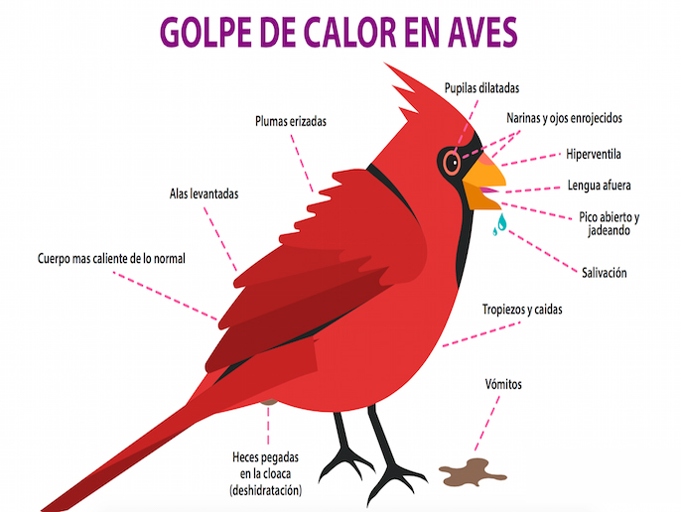
Birds are susceptible to strokes for many of the same reasons that humans are. A stroke occurs when the blood supply to the brain is interrupted, and this can happen for a variety of reasons, including blockages or bleeds.
The symptoms of a stroke in a bird can vary depending on the severity, but may include weakness, paralysis, and changes in behavior or personality. If you suspect your bird has had a stroke, it’s important to take them to a vet or avian specialist for treatment.
This can help your bird regain strength and mobility, and improve their quality of life. There is no one-size-fits-all approach to treating a bird that has had a stroke, but physical therapy may be recommended.
Move Bird To Box Or Carrier
This will help to keep them calm and still while you are waiting for help. If you think your bird may be having a stroke, it is important to get them to a vet as soon as possible. In the meantime, you can try to move them to a box or carrier.
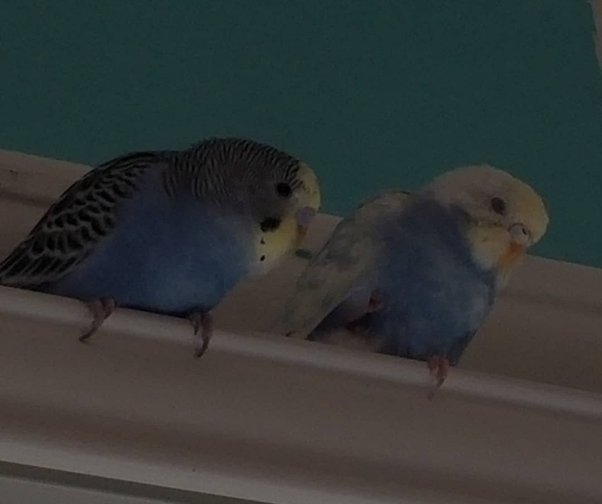
If your bird is having a seizure, it is important to stay calm and not try to move them. Once it is over, you can gently place them in a box or carrier and take them to the vet. This can be a frightening experience, but it is important to remember that your bird is not in pain and that the seizure will eventually end.
Offer A Good Diet
A good diet for your bird is important for many reasons. A healthy diet can help your bird maintain its energy levels, keep its feathers in good condition, and help it stay healthy overall.
There are a few things to keep in mind when choosing a diet for your bird. This means that it should contain all of the nutrients that your bird needs in the right proportions. First, make sure that the diet is nutritionally complete and balanced.
Second, choose a diet that is appropriate for your bird’s species. Some birds have specific dietary needs that must be met in order to stay healthy.
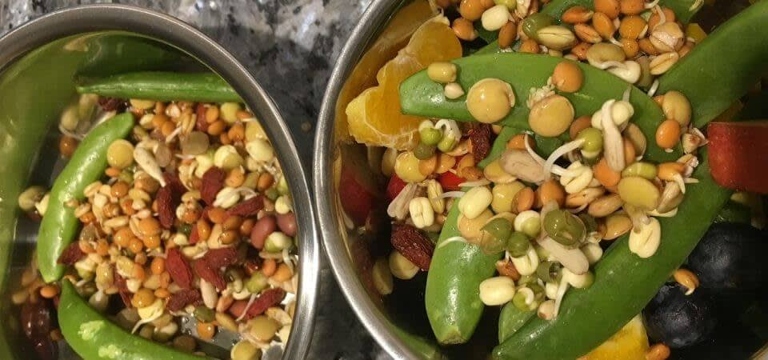
Finally, make sure that the diet you choose is palatable to your bird. If your bird doesn’t like the food, it won’t eat it and won’t get the nutrition it needs.
A good diet is an important part of keeping your bird healthy. By following these tips, you can make sure that your bird gets the nutrition it needs to stay healthy and happy.
Prepare For Another Stroke
If you think your bird may have had a stroke, it’s important to take them to the vet right away. While it’s not common, birds can have strokes.
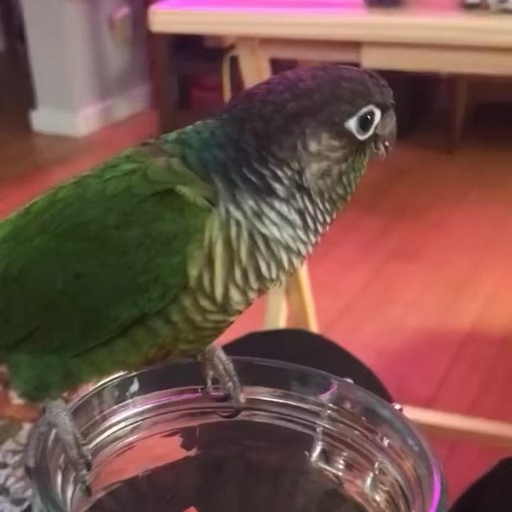
There are a few things you can do to help prepare for another stroke. First, make sure you have a list of your bird’s medications and dosages handy. You’ll also need to have a list of your bird’s current symptoms.
Try to minimize their stress and keep them in a quiet environment. If your bird does have another stroke, the most important thing you can do is to keep them calm.
If you think your bird may have had a stroke, the best thing you can do is to take them to the vet right away. With proper care and treatment, your bird can recover from a stroke and live a long and healthy life.
Frequently Asked Questions
1. Can birds have strokes?
Yes, birds can have strokes. Symptoms of a stroke in a bird may include weakness, paralysis, and incoordination. Causes of strokes in birds may include trauma, infection, and tumors.
2. What are the symptoms of a stroke in a bird?
Symptoms of a stroke in a bird may include weakness, paralysis, and incoordination.
3. What are the causes of strokes in birds?
Causes of strokes in birds may include trauma, infection, and tumors.
4. How can I care for a bird that has had a stroke?
If your bird has had a stroke, it is important to seek veterinary care immediately. Once your bird is under the care of a veterinarian, they will likely recommend a course of treatment which may include physical therapy and/or medication.
5. What is the prognosis for a bird that has had a stroke?
The prognosis for a bird that has had a stroke will vary depending on the severity of the stroke and the underlying cause. In some cases, birds may make a full recovery. In other cases, the bird may have permanent neurological deficits.
Final thoughts
There is still much unknown about bird strokes, but there are some things we do know. We know that they are potentially fatal and that they can happen to any bird, at any age. We also know that there are some things you can do to help your bird if they have a stroke. If you think your bird has had a stroke, take them to the vet immediately. There is no one definitive answer for the cause of bird strokes, but by working with your vet, you can help your bird live a long and healthy life.
